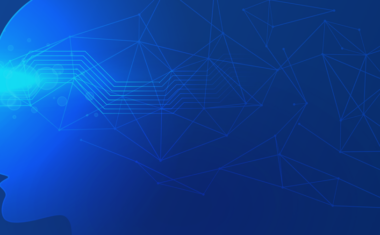Real Talk With an Uber Data Scientist: Quantifying Uncertainty


We recently sat down with Shae Wang, a data scientist at Uber, to discuss what motivated her to pursue data science, why she was intrigued by Uber’s work in the space, and what advice she has for aspiring data scientists.
The full video Q&A is below, but here are some of the highlights.
How did you become a data scientist at Uber?
In college, I studied statistics and then computer science, and after I graduated, I knew I wanted to be a data scientist somewhere. Uber was my top choice because I used the product a lot and I felt like I had a really good understanding of what it’s like to be a customer.
And I was always intrigued by the product itself. I loved seeing the little cars move around, and when you book a ride they’re always so on point with the ETA and with the amount charged. Everything was just working so smoothly and I wanted to know: what were the mechanics behind it?
I felt like joining the company would help me get there.
So within Uber, what teams do you work on?
Right now, I’m working on the bikes and scooters team, and previously I was on driver [growth].
How do they differ?
The biggest difference between the two teams is that on bikes and scooters we not only have mobile data, but bikes and scooters all have hardware that captures a lot of IOT device data, a lot of firmware data. All of these different data could add another dimension to how you can understand the user’s journey. When they’re actually on the scooter or bike, what exactly is their experience? Because the entire scooters-and-bikes experience extends from booking it, the entire trip, ending it, then reusing it, and being able to consistently find it on a street.
What’s it like working with bikes and scooters?
Bikes and scooters are really fun. First of all, it’s a brand new product to not just us, but also to the world. And I would say that you have to deal with data from a lot of different sources. For example, right now, you’re not just dealing with customer data. You’re looking at an IOT device, and you’re looking at mobile, and you have to use all this data to tie together a user’s journey. You have to synthesize an understanding of what is actually happening to a user and what do they really want out of your product. So that’s the really challenging part: combining these different types of data together.
What are some exciting data principles that you’re able to apply every day at work?
I think the most exciting part is when you run experiments, sometimes you run into network effects, sometimes you run into cannibalization, and you have to think of creative ways to address these problems while keeping your experiment results very robust.
One example is: Say you want to run promotions on a set of bikes and scooters for a certain area. And you want to see if that increases how many trips people are actually taking. Now, by applying the promotion you take away more supply from the control group, if the treatment group actually do end up taking more bikes and scooters, which might lower your conversion rate for your control group.
Basically, how do you make sure that your environmental controls are actually controlled?
What excites you about working with data science every day?
I think the most exciting part about being a data scientist is being able to derive insights and make decisions from incomplete information. Every day you’re making decisions, and you never know if they’re right or wrong. And you never have complete information. But data science actually quantifies that sort of uncertainty and I think it’s a very empowering experience to be able to help businesses make decisions and move forward even when they have incomplete information.
Get To Know Other Data Science Students
Sam Fisher
Data Science Engineer at Stratyfy
Garrick Chu
Contract Data Engineer at Meta
Hastings Reeves
Business Intelligence Analyst at Velocity Global
And then in contrast, what’s something that you might not like as much about being a data scientist?
I think one thing that all data scientists hate the most is messy data that they have to clean up and somehow debug. I encounter this in my day-to-day work, and you have to write a lot of SQLs. And a lot of that piece of the job is unavoidable, but I think it’s also nice to always see that as an opportunity to improve the platform and infra. It’s a good opportunity for people to say, “Hey, maybe I want to contribute a piece of open-source code to write something that could help make other people’s lives easier,” or suggest something to your company to build internal tools, or even build it yourself.
So would you mind speaking to your experience, first being in a formal educational setting, and then immediately going into the workforce? What was that like and do you have any advice for people who want to have a similar career path?
I think it was very exciting and overwhelming at the same time. The things you learn in school are all printed on a textbook and a lot of times they’re outdated, sort of old material. And in the workforce, you realize that people are using new methods, they’re using experimental methods, and people are constantly on top of new papers that are published. Especially in a world of data science, where new algorithms are developed every year at conferences.
I think one piece of advice I would have is to stay on top of news and stay informed, go to conferences, meet people, because data science is not a super mature field and there’s always opportunities for improvement. You should never be afraid to try new algorithms yourself or even try to develop a new method.
Finally, if you could travel back in time, what period of time would you go back to?
If I could also choose where I can be, then I would say that I want to travel back in time to work with Alan Turing. Love the movie “Imitation Game.” I think that was a main game-changer for me in college when I was trying to decide what I wanted to do.
Since you’re here…
Thinking about a career in data science? Enroll in our Data Science Bootcamp, and we’ll get you hired in 6 months. If you’re just getting started, take a peek at our foundational Data Science Course, and don’t forget to peep our student reviews. The data’s on our side.






